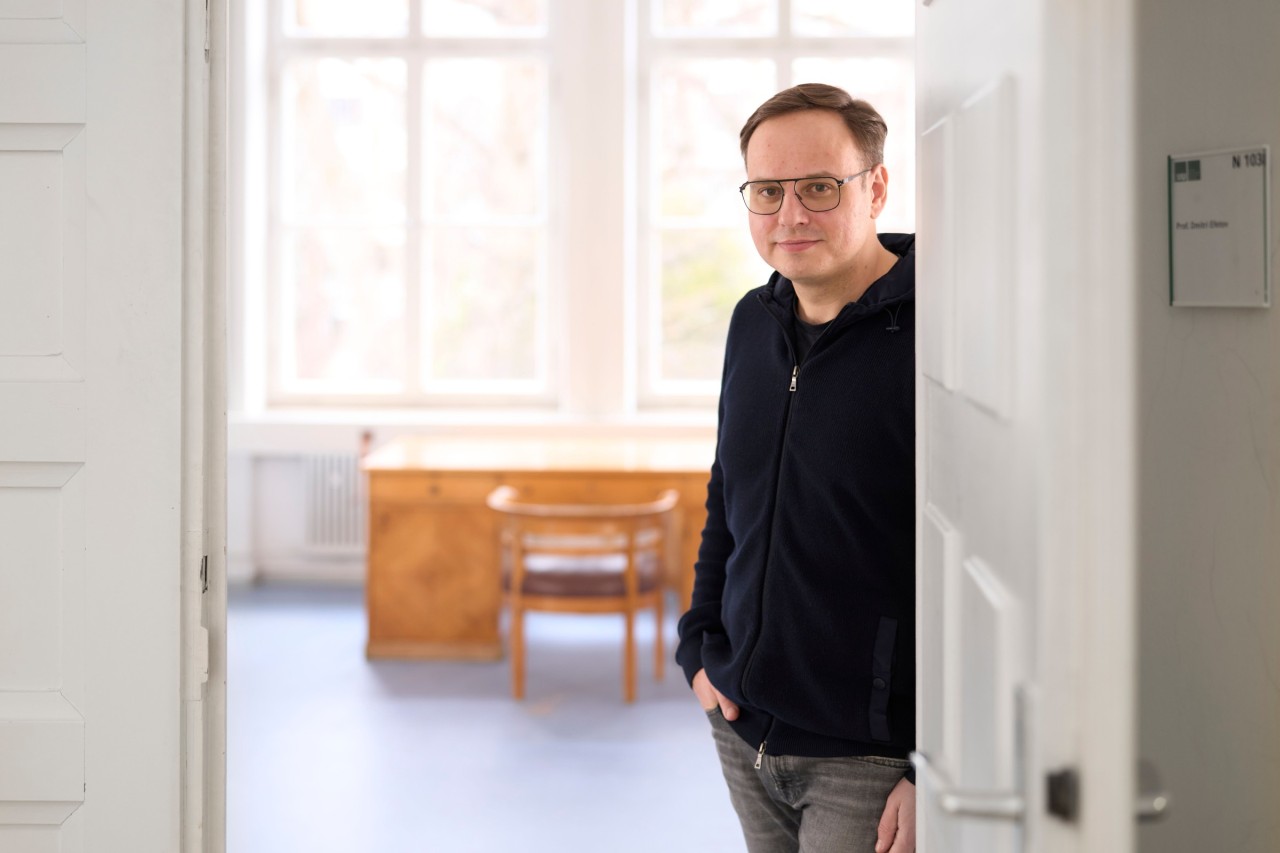14 December 2023
Leibniz Prize for Dmitri Efetov
Graphene is an allotrope of carbon with very special qualities. In the nanomaterial, which consists of just a single layer of atoms, electrons become massless. If you twist two layers of graphene to a certain ‘magic’ angle in relation to each other, you get a variety of exotic quantum phases with new physical phenomena such as superconducting, magnetic, and isolating states, the properties of which Dmitri Efetov studies. His research has yielded fundamental new insights into various quantum effects.
For his pioneering work on the manufacture of highly homogeneous ‘magic-angle’ graphene, Dmitri Efetov has been awarded a 2024 Leibniz Prize by the German Research Foundation (DFG).
Having studied physics at ETH Zurich, Efetov began researching graphene while doing his doctorate at Columbia University, New York. Subsequently, he worked as a researcher at Massachusetts Institute of Technology (MIT) and the Institute of Photonic Sciences (ICFO) in Barcelona. While there, he and his group were the third research team anywhere in the world to demonstrate superconductivity in magic-angle graphene. In 2021, he took up an appointment as Chair of Experimental Solid State Physics at LMU Munich and joined MCQST as well.
Awarded by the German Research Foundation, the Gottfried Wilhelm Leibniz Prize is considered the most important research award in Germany. This year, the prize will be given out to ten scientists. The winning scientists can use the prize money of 2.5 million euros for their research work for a period of up to seven years.
The article was originally published on the
LMU website.
Further Reading
- Interview with Dmitri Efetov on our blog: The Magic of Rotated Graphene Sheets
- Profile article on Research in Bavaria: Dmitri Efetov: Quantum Physics and Graphene
- Dmitri Efetov Receives the International Early Career Scientist Prize
